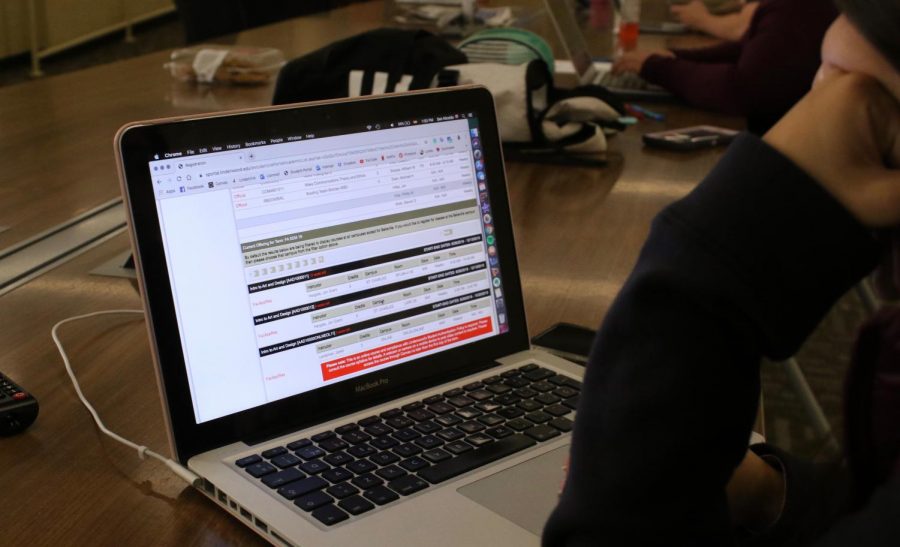Many Lindenwood classes switching to eight-week term to offer students more flexibility
Photo by Matt Hampton
Students register for next semester’s classes on the student portal.
November 30, 2020
Classes across the Lindenwood campus will be switching to shorter semester terms to increase student engagement and retention.
While the typical semester-long class is usually held over a 16-week term, a number of classes will be shortening the term length to eight weeks. One of the schools that will be implementing a majority of its classes in eight-week sessions will be the School of Arts, Media and Communications. This includes students in programs like journalism, music, theatre and web design.
Jason Lively, the dean of the School of Arts, Media and Communications, said the over 55 percent of classes in the school will be eight weeks instead of 16.
Although the large gatherings of students in classrooms has been a concern because of COVID-19, Lively said this push for eight-week classes are designed to help students balance their schoolwork load and offer a less-demanding schedule. Several of these classes will be hybrid, meaning a portion of the class meetings will be held online and others will be in-person meetings.
“There’s a lot of benefits to having a shorter-term than the full 16 weeks,” Lively said. “The graduation rates tend to increase on [college] campuses that are offering classes in the shorter term format. It provides a more concentrated experience for the students.”
Lively said instead of students taking five or six classes simultaneously, they can take two or three at a time, which he said will ultimately increase retention and allow for students to have more schedule flexibility.
Other schools like the Plaster School of Business and Entrepreneurship and various general education courses will be following the same model, according to Lively. Lively said research on flipped-model courses encouraged certain schools in the university to start moving in the direction of shorter-term classes.
Lively noted that some classes will not be feasible to transition from 16 weeks to eight weeks. This includes voice, dance, or music classes that could potentially cause injuries or damage to instruments due to the strain of a shorter curriculum. Overall, Lively said he believes this change will be beneficial to the student body and instructors.
“We’re really excited about it,” Lively said. “I think we’ve got an amazing opportunity to provide something that allows students to better manage school, athletics, work and other activities more easily as they begin to have schedules that are comprised of more eight weeks than 16.”
The first half of the Spring 2021 semester will be from Jan. 18 to March 14, while the second half is scheduled for March 15 to May 7. Spring break will be eliminated next semester to decrease student travel during the COVID-19 pandemic, according to the university.








